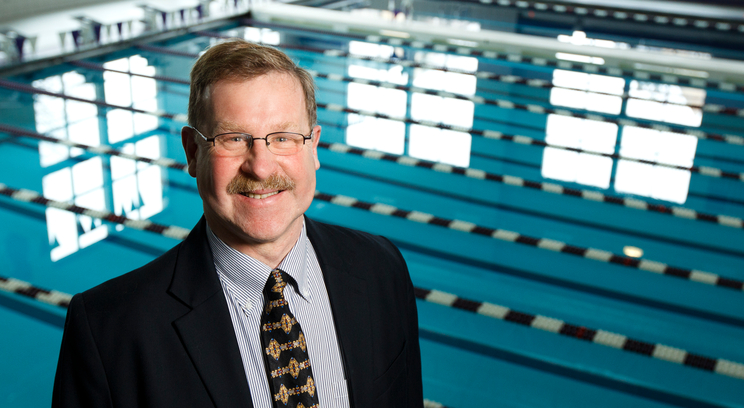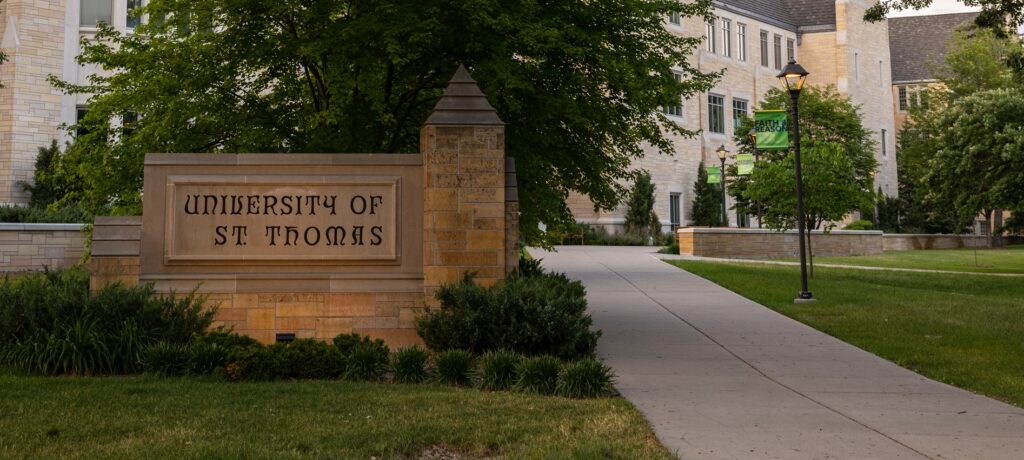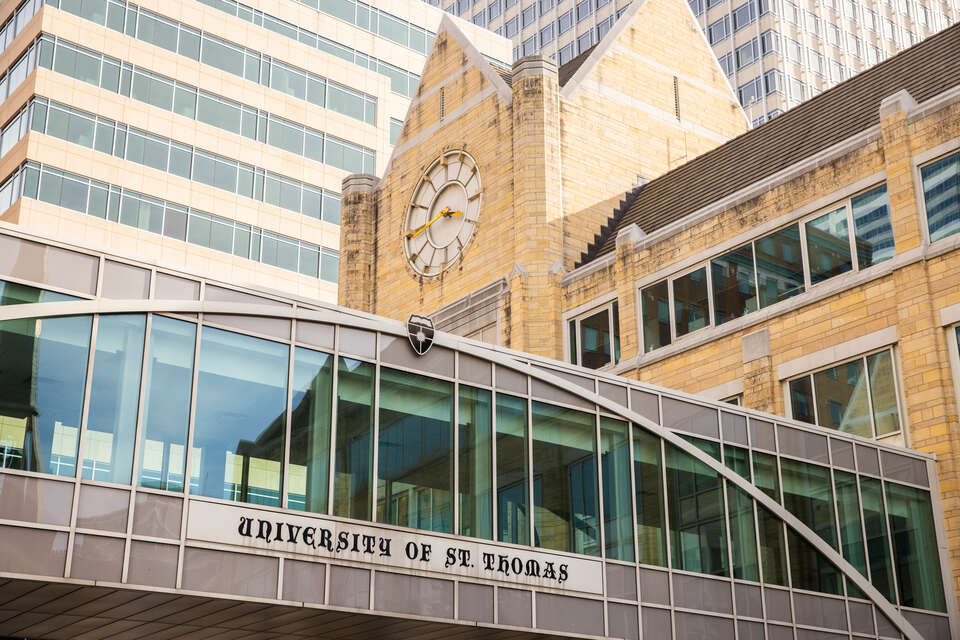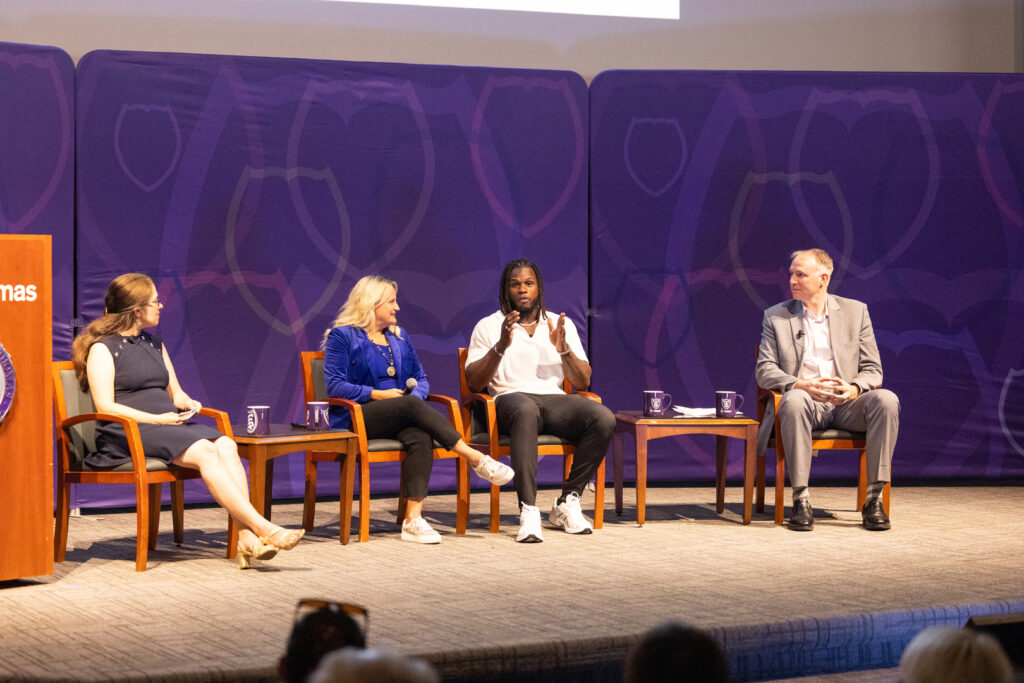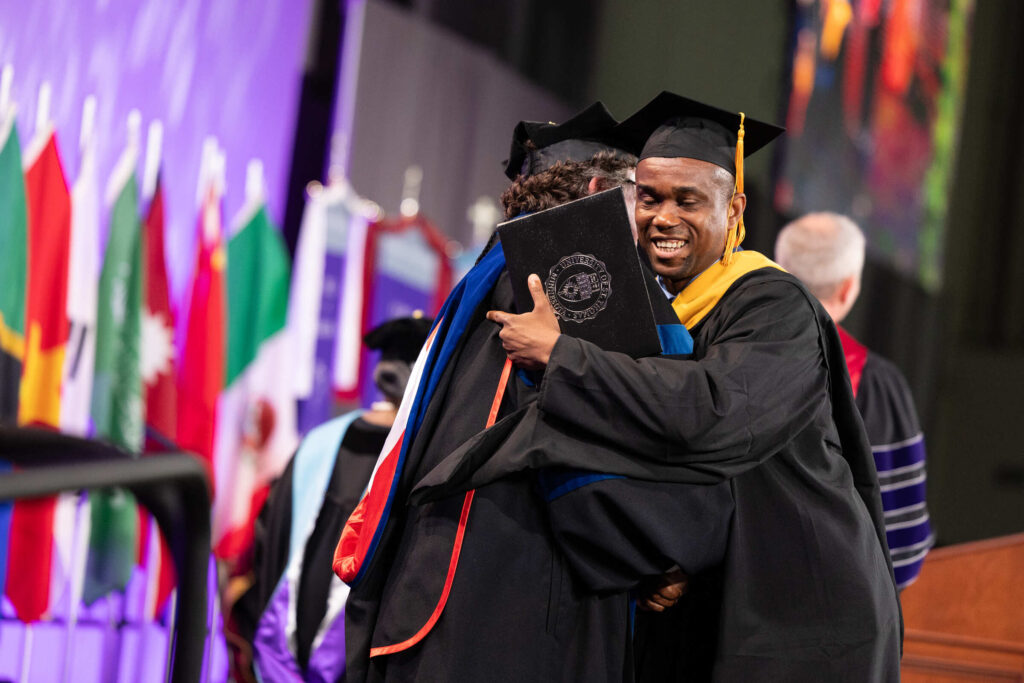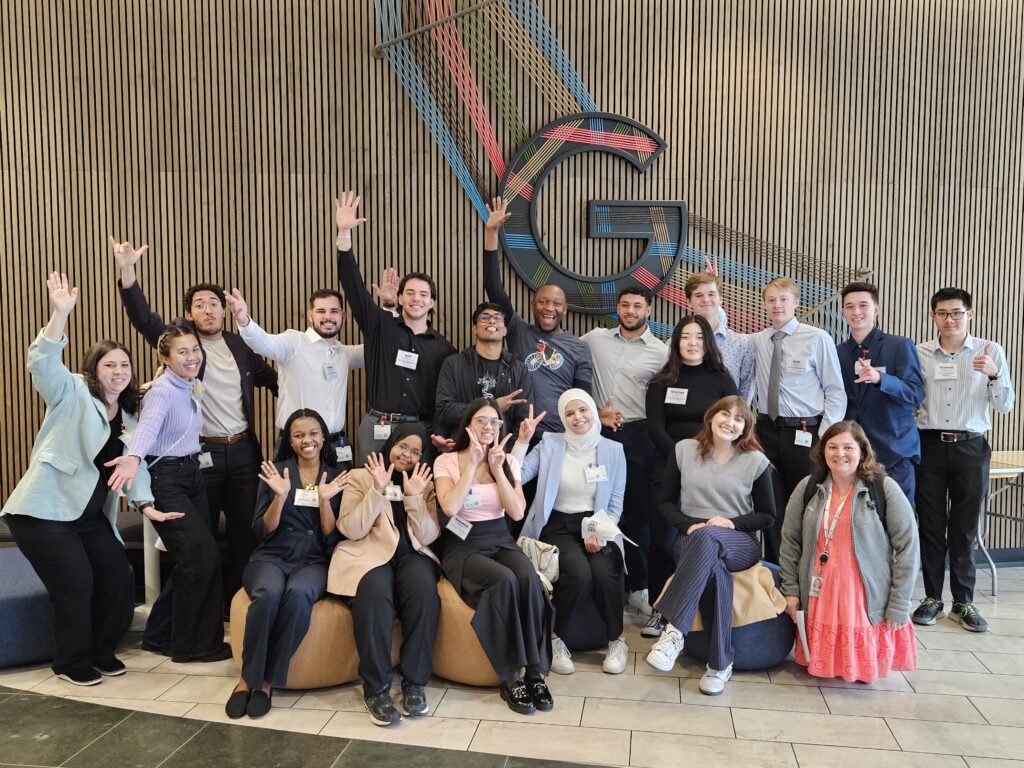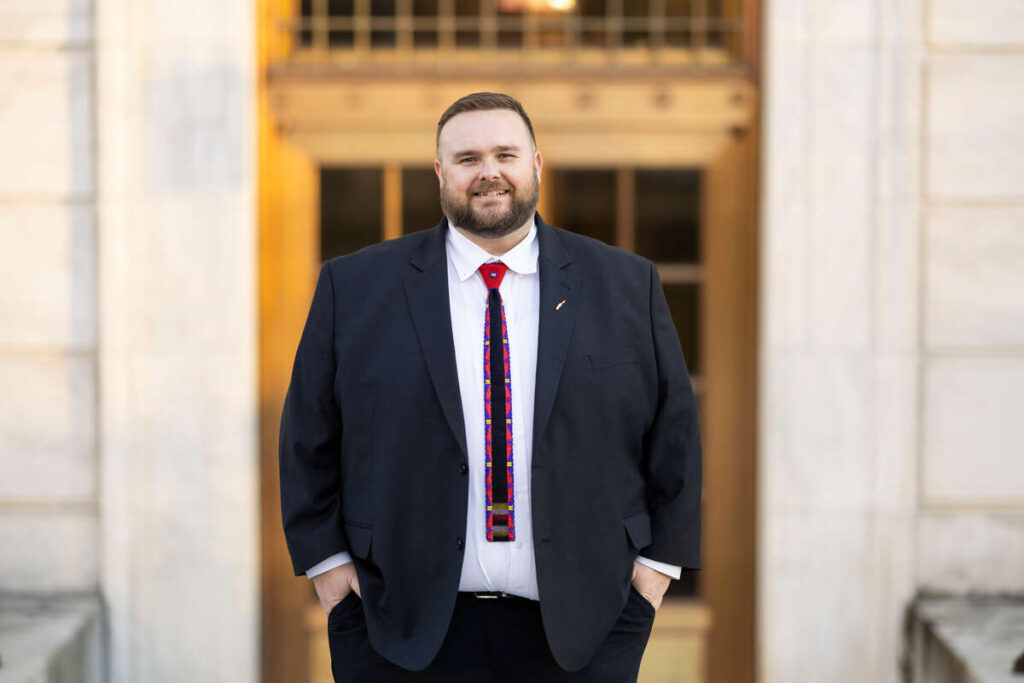When I originally came to St. Thomas over 30 years ago, I was not expected to be involved in substantive business and legal research, but over the past decade I have truly developed and enjoyed my research. As a faculty member at St. Thomas I believe my role encompasses teaching, research and service – balancing all three is just a matter of dedication and time management. I also believe that both faculty and students are researchers and learners. I am fortunate in that the courses I teach are aligned with my research interests. It is those courses that, in turn, further develop and deepen these interests. My research helps me because it is way of checking my ideas and seeing if I can make them practical and meaningful to my students.
Since becoming a faculty member at St. Thomas, I’ve developed three primary research streams: a) legal issues and performance-enhancing drugs in sport; b) legal issues in sport and risk management; and c) legal issues dealing with employment and trade secret law.
The business of sports is a multibillion-dollar global industry. My interest in legal issues and performance-enhancing drugs in sport comes from serving as one of the few members from the United States on the Court of Arbitration for Sport (CAS), which is located in Lausanne, Switzerland. Often referred to as “Sport’s Supreme Court,” the CAS is an institution independent of any sports organization, which provides services to facilitate the settlement of sport-related disputes. The CAS does this through arbitration or mediation, by means of procedural rules adapted to the specific needs of the sport world. With less than 300 arbitrators from 87 countries throughout the world, these arbitrators are chosen for their specialist knowledge of arbitration and sports law.
While being part of the CAS has made it logical for me to conduct research in this area, I also have chosen this stream because I firmly believe that doping is a dangerous health risk for the youth of the world today. Doping is contrary to the basic principles of sport and fair play. Most recently I have been working on the need to consolidate and harmonize the fight to protect clean competition for athletes throughout the world. It is essential for the integrity of sport. From conference presentations and citations of my work, I have seen that my research has raised an awareness of the problem and has stimulated discussion and debate.
Nelson Mandela once said, “Sport has the power to change the world ... it has the power to inspire.” At the same time – as seen from the tragic events at the 2013 Boston Marathon – because sports are so strongly associated with American economy and culture, they have been considered significant targets of terrorism attacks. The heroic “Boston Strong” recovery showed that sport can truly inspire and unify. Yet I also believe it showed that there is a need for sport event managers to create a risk management plan. Risk management is more than just looking at potential losses; rather, it is important to emphasize that modern risk management is now structured around a comprehensive process for assessing and addressing risks.
In order to fully comprehend their legal responsibilities, event managers must gain an appreciation for the development of risk management plans specific to their activities. Risk management should be used to assist sport event managers in providing a reasonably safe environment for their contestants, guests and sponsors. As such, risk management may be perceived as constituting a fundamental way in which decision-makers solve problems. By possessing this awareness, event organizers may minimize the likelihood of future potential litigation that negatively impacts the reputation and financial considerations of the organization. Best practice models provide access to event processes that appear to describe the best ways of preparing, organizing and conducting an event.
My third area of research and teaching interest – employment and trade secret law – comes from my personal experience in business and law. I have been fortunate to be a member of a family business that is the premier source for structural steel bending in the United States. Additionally, in my private practice I had the opportunity to provide legal advice and counsel to clients in the areas of employment and business law.
I have been extremely fortunate to have the support of my chairs, the deans and the college to continue to expand my research. It is also exciting because my research is interdisciplinary and has given me the opportunity to work not only with colleagues in the Opus College of Business, but also with colleagues throughout the country – crossing traditional disciplinary boundaries of inquiry.
Finally, I firmly believe that my research has and will continue to enrich my teaching just as my teaching enhances my research. When I first came out of law school and graduate school and started teaching, I was foolish enough to think I knew the answers. Over the years, I have learned from my students and my research that I still may not know the questions. Life is a journey, so we can enjoy the ride.
Professor Dr. John Wendt teaches in the Opus College of Business Ethics and Business Law Department and has served as MBA director for Sports and Entertainment Management.
From Exemplars, a publication of the Grants and Research Office.
